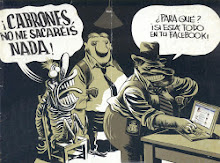Marilyn Stasio
I’d know that voice anywhere. It’s the seductive drawl
and lowdown dirty laugh of Walter Mosley’s mellow private eye, Easy Rawlins.
And he’s talking his way through another case in CHARCOAL JOE (Doubleday,
$26.95), purely as a favor to his fearsome friend, Mouse, who’s “mostly evil
and definitely a killer,” but dangerously attractive for all that. In passing
this job along to Easy, Mouse is doing a favor of his own for Charcoal Joe, a
criminal legend who wants Easy to exonerate a young black university professor
accused of murder by finding the real killer of two white men in a beach house
in Malibu.
It’s May 1968, nearly three years after the Watts
riots, but black neighborhoods are still simmering with rage. “Life was like a
bruise for us,” Easy says about a nasty flare-up in an otherwise peaceful
barber shop. “We examine every action for potential threats, insults and
cheats.” That’s why it’s such a joy to hang around with Easy, who is . . .
easy. No furies in his brain, no fires in his gut, just an unquenchable
curiosity about people and their personal dramas. Following the meandering plot
is beside the point once Mosley starts bringing on his familiar characters for
Easy to chat up.
It’s tempting to pick favorites. There’s Jackson Blue,
“an odd product of the American ghetto,” who used his formidable intellect to
make his private fortune but couldn’t outrun the fears imprinted by his
impoverished background. And here comes Fearless Jones, the amiable strongman
with fists like hams and a baby’s pure heart. Easy’s lady friends, like Mama
Jo, the “backwoods witch,” and the “beautiful and stormy and self-assured” Coco
Ray, are vibrant creatures all. And they seem to end every interview with
sexual favors.
None of this should imply that Easy is a pushover. As
the awesome Mouse once told him: “I couldn’t live like you, Brother Easy,
uniform bangin’ on the front do’ and a cougar lurkin’ out back.” Easy is a brave
man, it’s true, not just because he’ll do battle with bruisers twice his size,
but because he isn’t ashamed to declare himself “a man of strategy” — a man
unafraid to lower his fists and use his brain.
“There are no churches in Willnot,” James Sallis assures
us in WILLNOT (Bloomsbury, $26). This quirky Virginia town also has “no
Walmart, no chain grocery or pharmacy, discount or big-box stores. No
billboards, no street advertising, plain storefronts.” Given all this, who
would even bat an eye when Tom Bales’s hunting dog, Mattie, sniffs out several
bodies scattered in quicklime?
Willnot may have no use for conformity, but it’s
surprisingly tolerant of rebels, radicals, conspiracy theorists and plain old
oddballs. That pretty much covers the entire populace, from feisty Miss Ellie
(“You can’t fix stupid. And you sure as hell can’t kill it”) to brooding Bobby
Lowndes, a former Marine sniper who’s being stalked by another marksman. Even
Dr. Lamar Hale, the personable and presumably square narrator of the story,
once fell into a mysterious yearlong coma and felt his body become host to the
spirits of the living and the dead. (Dr. Hale’s father, a “literary outrider
and trickster,” wrote a novel with a similar plot.) A worthy mouthpiece for
Sallis’s melodic cadences, Dr. Hale is goodness personified, a sweet and caring
man who doesn’t need to inhabit his patients’ bodies to understand their lives.
Who wouldn’t love to catch a glimpse of a favorite
sleuth as a blundering amateur? Cara Black lets us do just that in MURDER ON
THE QUAI (Soho Crime, $27.95), which reveals how Aimée Leduc, her fashionable
Parisian private investigator, joined the business founded by her father and
grandfather. It’s November 1989, an exciting time for Aimée. The Berlin Wall
has fallen, young people are beginning to connect on giant cellphones, and
Leduc père is busy elsewhere, leaving her alone to work her first case. In
investigating the murder of a distant relative’s father, Aimée is drawn into
the secretive wartime past of a provincial village. The case is engrossing,
complete with Vichy flashbacks, but the most fun are the scenes where Aimée
meets her future partners and acquires Miles Davis, her beloved bichon frisé.
One caveat: For such a clotheshorse, Aimée doesn’t do nearly enough shopping.
Bob Reynolds, who calls himself “a dyspeptic poet with
a little family money,” is a stranger in town, and Doker, Ark., is the kind of
town that doesn’t take kindly to strangers. In CB McKenzie’s outsider regional
mystery BURN WHAT WILL BURN (Thomas Dunne/Minotaur, $24.99), Reynolds rashly
makes a play for the local beauty, Tammy Fay Smith, ignoring the prior claim of
Sam Baxter, High Sheriff of Poe County, who also happens to be the county’s
High Drug Lord. Under these awkward circumstances, Reynolds has a hard time
convincing the sheriff that he saw a dead man in a red shirt floating in the
Little Piney Creek, especially when the body disappears.
A poet is no match for the crackers in this backwoods
barrel, and although Reynolds is fascinated by the casual violence that governs
Poe County’s customs, he finally gets the message. “In strange lands,
foreigners reach the limits of their Local Knowledge only as allowed by Locals
and that is why foreigners are called Foreign and locals are called Local,” he
observes — on his way out of town.

























.jpeg)








0 comentaris:
Publica un comentari a l'entrada